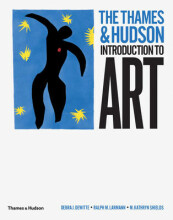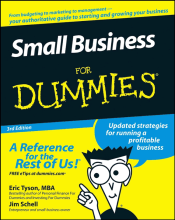Summary: Democracy And Participation
- This + 400k other summaries
- A unique study and practice tool
- Never study anything twice again
- Get the grades you hope for
- 100% sure, 100% understanding
Read the summary and the most important questions on Democracy and participation
-
1 Two forms of democracy
-
1.1 Direct democracy
-
Explain how direct democracy gives the public the power to make decisions?
Direct democracy allows people to make key political decisions. In modern societies, this usually takes the form of holdingreferendums . For example, the2016 referendum . -
How has direct democracy returned in today society?
Today direct democracy has returned in the form of the referendum, now relatively common in Europe and some states of the USA. -
Can direct democracy replace representative democracy?
However, direct democracy cannot replace representative democracy completely. Rather, it is an addition to representative democracy. Some decisions are considered so vital , and also so unsuitable for representatives to make them , that they are left to the people. -
What are the advantages of using direct democracy?
It is the purest form of democracy e.g.:referendums .
unlike the British system of representative government based on parliamentary democracy is limited in the extent are only held every four or five years. using democracy via system ofreferendums would reduce the democratic deficit since1997 labour heldreferendums in each of the first two terms the deficit reduced. Regularreferendums under a system of direct democracy would end thisdefecit . -
What are the advantages of using direct democracy in terms of avoiding deadlock and delay in the political system?
It can avoid delay and deadlock in the political system e.g. 11 September1997 Scotland Scottishdevolution refendum as whether Scotland should have their own parliament.referendums can settle an issue that have been on the political agenda for some time. We saw this in favour of aScottish parliament after years of debate. Thereferendum resultdemonstrated as one politician put it ' the settled will of the scottish people'. -
What is another advantage of direct democracy in terms of giving power to the people?
One advantage of directdemocracy in terms of giving power to the people would be the fact that people are making a decision gives it greatlegitimacy .. There has been a newemphasis on public engagement in politics. all public bodies should require to involve citizens in their decision makingprocesses . furthermore,supporters of the use ofreferendums argue in the context of increasingvoter apathy anddisenetchment with traditional forms of democracy , direct democracy can help to re engagevoters with politics and democracy. -
What are specific examples of direct democracy in the uk ie refferendums?
Eu referendum June 23rd 2016 a referendum on the uks membership of the European union
11 September 1997 Scotland- Scottish devolution referendums whether there should be a Scottish parliament. -
What are the disadvantages of direct democarcy
It can lead to the tyranny of the majority whereby the winning majoirty simply ignores the interests of the mintorty. Elected represntatives can mediate between the interersts of the majority and minorities. For example the vote turnout of the eu referendum was 72.2 percent. -
What are the disadvantages of using direct democracy
The people may be too easily swayed by short term, emotional appeals by charismatic individuals. The great ohilosopher plato criticised direct democracy on these grounds.) -
1.2 Representative democracy
This is a preview. There are 1 more flashcards available for chapter 1.2
Show more cards here -
What is representative democracy
Representative democracy democracy choose others to represent for them. the basis of this type ofdemocracy is that the people do not make political decisions, but instead choose representatives to make decisions on their behalf.
- Higher grades + faster learning
- Never study anything twice
- 100% sure, 100% understanding
Topics related to Summary: Democracy And Participation
-
Two forms of democracy - Representative democracy
-
Two forms of democracy - Debate - Advantages of direct democracy and representative democracy
-
Suffrage key milestones the work of the suffragits
-
Pressure groups and other infleunces
-
Tink tanks lobby sits and coorporations
-
Consitution
-
Global governance: economic
































